
Earthquake preparedness at UVic
British Columbia is in an earthquake zone and it's important that we’re prepared for when an earthquake strikes.

British Columbia is in an earthquake zone and it's important that we’re prepared for when an earthquake strikes.

The Great BC ShakeOut will take place on Oct. 17. The following University of Victoria experts are available to media to discuss earthquakes and community safety.
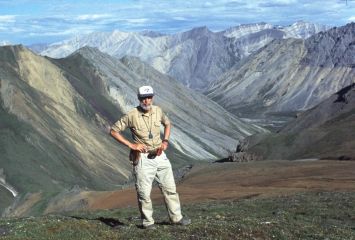
University of Victoria Adjunct Professor Paul Hoffman has won the Kyoto Prize for his tenacious research of Earth’s geological history.
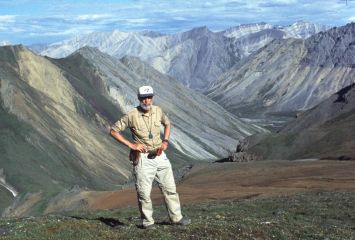
Paul Hoffman has been steadfast in his explorations of hypotheses that other scientists have ignored. Despite backlash against his research at various times throughout his career, the geologist and adjunct professor in UVic’s School of Earth and Ocean Sciences has made groundbreaking achievements regarding global freezing and plate tectonics in the deep past. On June 14, 2024, Hoffman was awarded the Kyoto Prize in Basic Sciences by the Inamori Foundation for his profound influence on our understanding of Earth’s early history.
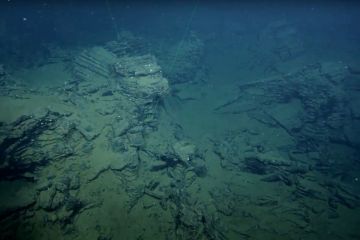
Injecting CO2 into ocean basalt has almost no risk of triggering seismic activity like earthquakes or fault slip according to new research from Solid Carbon, a climate change mitigation project.
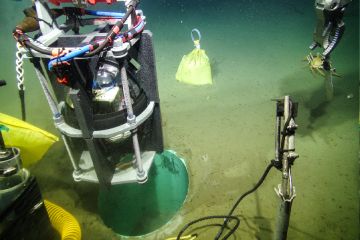
Ocean Networks Canada (ONC), an initiative of the University of Victoria, today welcomes a new federal investment in its world-leading ocean observatories located on the Pacific, Atlantic and Arctic coasts of Canada.
Array
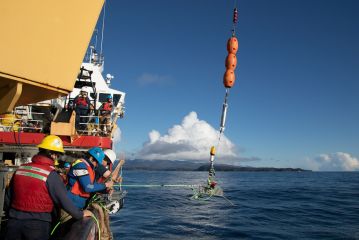
Fisheries and Oceans supports Canada’s ocean research technology and blue economy innovation with $8.7-milion funding in the University of Victoria’s Ocean Networks Canada.
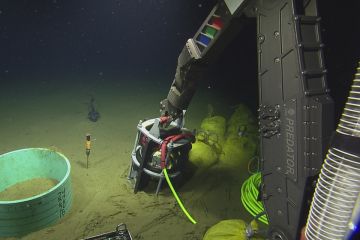
Ocean Networks Canada has installed the final set of underwater earthquake early warning sensors off the west coast of Canada, and will mark a significant operational milestone in partnership with Protrans BC, operator of Vancouver’s Canada Line rapid transit system, with a simulated exercise.
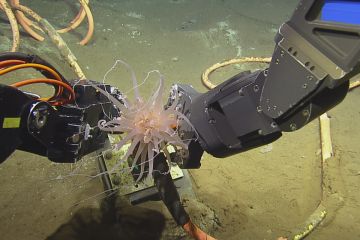
Could the world’s next large-scale neutrino detector be built at the bottom of the ocean? This summer, as part of its 2018 Wiring the Abyss expedition, Ocean Networks Canada (ONC) is installing specialized equipment at its deepest site in the northeast Pacific Ocean to assess the location’s suitability for observing neutrinos
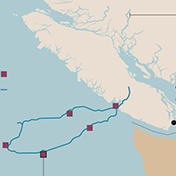
Scientists test waters for large-scale physics experiment
Array
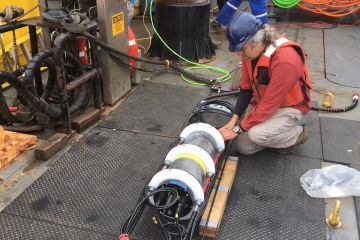
ONC is installing specialized instrumentation at Cascadia Basin, 2,700 metres below sea level in the northeast Pacific Ocean, during Expedition 2018: Wiring the Abyss to assess the location’s suitability for observing one of the universe’s most essential and difficult-to-study ingredients—neutrinos.
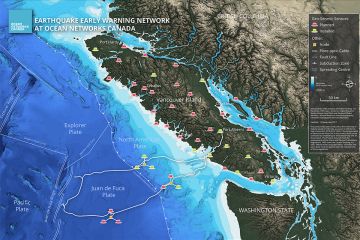
In the early morning hours of Jan. 23, a magnitude-7.9 earthquake occurred off Alaska, generating a tsunami warning for coastal BC, and alerts and evacuations on Vancouver Island. As the tsunami wave moved over Ocean Networks Canada (ONC) sensors connected to its deep-sea offshore observatory, ONC staff surged into action interpreting real-time data, working with emergency planning and response authorities, and interacting with the public on social media.
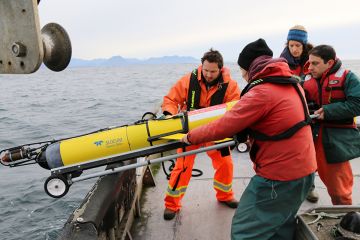
Two University of Victoria projects with the potential to change how the world interprets the forces of nature have taken a major step toward being realized with today's Canada Foundation for Innovation announcement of $6.3 million in funding support.
Learn what to do during an earthquake to protect yourself—Drop, Cover and Hold On! Participate in the Great British Columbia ShakeOut on Oct. 19.